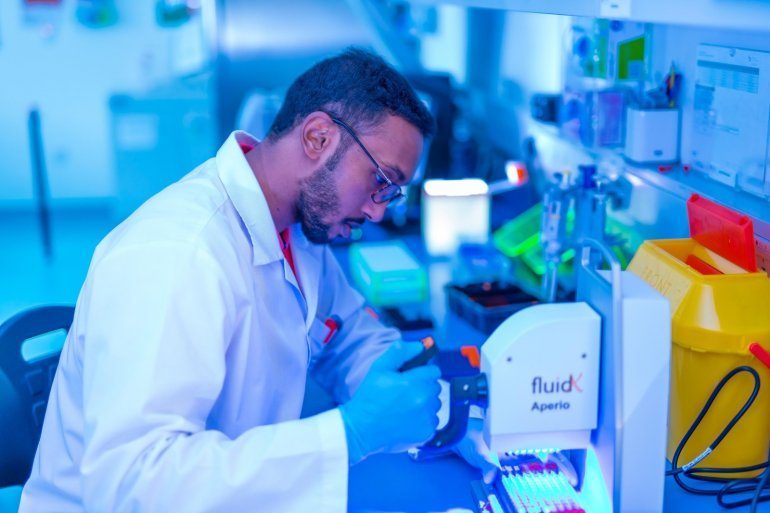In what is the first of its kind in the Middle East, advanced research will be conducted analysing pregnant women’s journey to better understand genetics.
Qatar Biobank, a research entity which is part of Qatar Foundation, is conducting what’s been billed as The Qatari Birth Cohort (QBiC) study to understand gene-environment interactions. The study involves scientists and experts observing 216 pregnant women and 76 fathers-to-be.
The cohort study aims to examine how factors such as the environment, genetics, nutrition, and social aspects may affect a baby’s health. Among the participants 70 percent of the women are overweight; 37 percent have gestational diabetes; 20 percent have a thyroid dysfunction; 10 percent have reported a psychological illness; and nine percent were diagnosed with hypertension.

“No one has done this before in the region, specifically for birth cohort studies. There have been smaller studies completed or ongoing in the Middle East area with a small number of participants, but nothing that is as holistic as ours,” said Dr. Eleni Fthenou, a scientist at Qatar Biobank.
Now in its pilot phase, the study aims to recruit 3,000 families and follow the journey of the child from pregnancy until they are five years old. The research team at Qatar Biobank has developed well-designed protocols for data collection with a focus to get harmonised data for future collaborations with other international birth cohorts.
“This project aims to be an in-depth investigation of the impact of genome-exposure synergy in the establishment of adverse birth outcomes and chronic disease development. And because of this, we can cover multiple outcomes,” says Dr. Fthenou.
According to Dr. Fthenou, the people being studied come from 31 nationalities, including Qataris, representing 28 percent of the sample population, and people who have been residing in Qatar for a minimum of 15 years constituting 54 percent of the sample population.
Read also: The anxieties of Doha’s expecting mothers
The mothers will also be followed after delivering their children, to detect additional factors for a more holistic analysis.
“We will get data such as whether the mother is breastfeeding – what type of br

Breastfeeding (exclusive or predominant); we will have the mother checked for postpartum depression; and follow-up on the baby at six months, one year, two years, and finally at four years,” said Dr. Fthenou.
The genomic study also aims to represent the Arab population as all previous birth studies mainly represented European, American or Australian.
Although the QBiC study has been ready to move to its second phase for a while, the COVID-19 pandemic set a hurdle for the research team. However, in the second phase, the team is expected to collect data from newborns and toddlers, including mothers for at least a month after birth.
Researchers claim that such a study will pave the way for an emerging medical model, wherein customised healthcare is provided by predicting how an individual will respond to a drug or therapy based on their genome.
Follow Doha News on Twitter, Instagram, Facebook and Youtube







